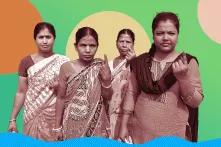New ways of being to trigger revolutions and transformations

I. Opening up of sacralised orthodoxies
Amidst movements of peoples and changing demographics, pluralities are an inescapable condition of our societies and need to constitute an essential aspect of our social and political self-understanding (Taylor 2007; Kaltsas 2019). Historically, the desire for pluralism has fuelled the drive for secularism, as an antidote to the threat of religious/ theological domination. Although secularism has facilitated the emergence of a common social space of freedom, secular states have been coloured by dominant religions/ theologies and failed to come to terms with pluralism (Geetha and Rajan 2011).
Furthermore, the privileging of secular reasoning over metaphysical/ supersensuous mechanisms of perception, whose evidentiary integrity is questioned, has led to the prioritisation of the secular. This privileging has been challenged. Roy Bhaskar calls for “new ways of being…seeing and…acting” that include “mind, emotion and supramental or transcendental consciousness” (Bhaskar 2012, 277). Cynthia Bourgeault, a Christian contemplative, expounds “an alternate way of wiring the brain that did not depend on… bifurcation of the perceptual field … Instead, one would grasp the entire pattern as a whole – holographically … working on vibrational resonance rather than mental abstraction” (Bourgeault 2016,49).
Western/ Eastern religion/ theology for which secularism is considered an antidote, is understood as orthodoxies that have solidified over centuries, promoting domination, exploitation, and oppression. As Dussel asks, while discussing Liberation Theology, “…many Christians upon entering the political arena ‘lost’ their faith… Should there not have been some other expression of faith that could have survived the ‘test’ of politics?” (Chakrabarti, Dhar and Kayatekin 2020, 138). Swami Vivekananda, one of India’s eminent spiritual leaders, “faulted traditional commentators [of ancient Indian scriptures] for ‘text-torturing’” and promoting oppressive structures like casteism (Medhananda 2022, 39-40). Religion as a practice addressing the inner lives of humans, “having to do with the lived experience of existential meaning… wholeness and love…creative agency…interconnection” (Chakrabarti, Dhar and Kayatekin 2020, 15) has been sometimes submerged under the weight of orthodoxies.
Yet, the idea of secularism has become a form of “sacralisation[AB1] of power… beyond the reach of contestation…” (Balibar 2018, 51). In an increasingly plural world where existential questions tear at the heart of the human condition, both secularism and religion/ theology need to be re-examined. The term ‘spirituality’ is gaining currency as different, although not separate, from religion; Foucault had said what opposes spirituality is not science but theology (Chakrabarti, Dhar and Kayatekin 2020, 52). Cosimo Zene points to alternatives: “…Ambedkar and Gandhi strive to achieve…an innovative, transforming, and immanent spirituality, which…reflects the historical experiences of subaltern groups…opposed to… (often official) religion that enslaves subalterns…[T]hey are not ready to give up the human spirit that can animate…present-day transformation and new politics…” (Chakrabarti, Dhar and Kayatekin 2020, 322). We need to rescue spirituality from religious/ theological orthodoxies and secularism from its sacralised status, commit to an engaged approach for a better world for all sentient beings, and open new avenues for dialogue and enquiries at individual and collective levels.
II. Guideposts for an engaged spirituality
In the unchartered waters of an increasingly pluralistic world, what can be some of the guideposts for interactions and explorations?
Even as religious/ theological/secular/ political orthodoxies compete for their dogmas, ancient wisdoms such as the Upanishadic or Buddhist teachings warn us against defining “the Truth” through singularity, objectification, and boundedness. Everyday multiplicities are doorways to advancing our understanding towards “the Truth”, according to the Mandukya Upanishad – at the same time, always knowing that “the Truth” can never be an object available for exclusive capture. Modern philosophers such as Foucault expound that “critical ontology of ourselves has to be considered not…as a theory, a doctrine…”; but rather “as an attitude” to include both “the historical analysis of the limits that are imposed on us and an experiment with the possibility of going beyond them” (Foucault 1984, 50).
In ancient Indian philosophies, two attributes have been considered important for our exploration, understanding, and deepening in a journey towards “the Truth”. They are viveka/ discernment and vairagya/ dispassion/ non-attachment. Viveka/ discernment is a continuous alertness to that which leads us towards or away from “the Truth”. Vairagya/ dispassion is a continuous learning, re-learning, and letting go of attachments to pre-conceptions and to an expectation of a triumphant arrival at “the Truth”. Viveka/ discernment and vairagya/ dispassion are key to living amidst pluralities. Contemporary scholar Charles Taylor urges us to be “grounded on a plurality of possible bases and foundations” (Taylor 2010, 8). These bases and foundations are not exclusively secular or religious, or from any single orthodoxy/ ideology established through dominance and habitual deployment.
Spirituality needs to be recovered from its constraints: Both its conflation with and marginalisation by religious orthodoxies (that shun contemplative traditions, and equate spirituality with them), its monastic connotation or other-worldliness and as an opposite of the secular. Spirituality, at its best, has been an informed non-denominationality (although not necessarily so), a celebration of pluralism and a striving for common ground within and among traditions of believers and non-believers. Spirituality is the exploration of the inter-connected worlds of humans in a journey towards “the Truth,” which is not an object external to us but the removal of our ignorance/ misconceptions that occlude our understanding of ourselves and the world.
Spirituality is grounded in our experiences. But Bhaskar reminds us there is more to our everyday being than current knowledge imagines. We have to go beyond our prejudices based on binarisms of material/ spiritual, open to different modes of perception, intuiting, and allow the ‘supramental’ in addition to the mental and emotional (Bhaskar 2012). Vivekananda called these ‘supersensuous’ modes of accessing, discovering, and knowing that contribute to an “expanded evidentialism” and “wide empiricism” (Medhananda 2022, 9). Bourgeault calls this the emergence of “a whole new operating system” (Bourgeault 2016, 31).
Spirituality challenges us to explore/ enquire into binaries such as material/ spiritual, private/ public to discover their co-constitution and porosity. Such enquiries are both individual and collective. Self-transformation is essential to universal transformation and “humanity has only ever had one objective…universal self-realisation…implicit in human praxis and…all emancipatory discourses, whether secular or religious” (Bhaskar 2012, xviii;). Kabir Helminski of the Sufi Mevlevi order reminds that “A spirituality adequate to the times we live in must…be centred in the reality of human completion...” (Helminski 1999, 22). Such views challenge the linear notion that inner/ self enquiry/ work detracts from/ delays collective work. Instead, they encourage us to think of transformation, as non-linear ripple effects or centrifugal/ centripetal forces, where cause and effect are not cognisable in linear time and space.
In ancient Indian philosophies, self-enquiry, often called atma-vichara, is a systematic enquiry into reality and key to self-transformation. The process of self-enquiry/ atma-vichara, as expounded in Advaita Vedanta with echoes in Mahayana Buddhism, goes beyond psychology to questions of consciousness (supramental/ supersensuous). Other pathways of self-exploration (such as the devotional in the Bhakti tradition) are equally valid. Self-enquiry is a journey towards “the Truth” requiring systematic learning, reflection, and contemplation (sometimes termed shravana, manana, nidhidhyasana). This resonates with Foucault’s excavation of “care of the self” and “know thyself” from Hellenic times and later Plato; “...[f]or the ‘care of the self’ culture, subjects are not capable of truth unless they undergo a transformation or conduct certain operations on themselves” (Chakrabarti, Dhar and Kayatekin 2020, 53). Self-enquiry is not capitulation to an oppressive orthodoxy or a passive acceptance of an imposed faith – but a disciplined, informed, and guided process of enquiry into reality, driven with self-reliance and an unbounded curiosity that is not limited by a strictly materialist paradigm. Its result is self-transformation and liberation through the removal of ignorance/ avidya/ conditioning/ untruth of the self’s true potential.
The ancient Upanishads assert that no authority/ priest/ institution can grant this liberation; it is solely the purview of an individual’s anubhav/ experience arising from self-enquiry. This does not negate the need for study or work; rather, this discredits orthodoxies/ authorities that exclude vast masses of people from such endeavours, in order to preserve their own privileges. Vivekananda questioned traditional commentators of scriptures who bolstered casteism through arguments that certain castes should not be allowed to study the Vedas (Medhananda 2022, 39-40). Self-enquiry is a “de-hypnotisation” through aparoksha jnana – unmediated and intuitive experience. This approach finds its echo in Marx: “The criticism of religion disillusioned man, so that he will think, act, and fashion his reality like a man who has discarded his illusions and regained his senses, so that he will move around himself as his own true Sun” (Marx 1970). Self-liberation is in everyone’s power here and now in this world, not in another world/ heaven, or after death. Dalai Lama calls religion an opium when it privileges the next life over this life (Chakrabarti, Dhar and Kayatekin 2020, 358).
Self-enquiry needs to be distinguished from narcissism or self-indulgence. Atma-vichara or ‘know thyself’ is fundamental to understanding the world (sarva-vichara). As Helminski warns, “We take the individual human person as the ultimate unit of reality and ignore the fact that a common life and consciousness flows through each of us” (Helminski 1999, 8). Ramakrishna considers as essential a two-step process that is co-emergent, not sequential – of self-enquiry (the jñānī) and of living in the world as a self-realised individual (the vijñānī). He warns against an other-worldly self-centred self-enquiry and contrasts “the spiritual selfishness of jñānīs with the spiritual compassion of vijñānīs” (Medhananda 2022, 25-27). The co-emergence of atma-vichara and sarva-vichara breaks the divide between individual/ collective and calls for an engaged spirituality.
Engaged spirituality is world-affirming. Zene in discussing Gramsci notes that “the ‘cultivation of inner life’ for Gramsci is not a private pursuit…but…rather…a task…as a ‘collective thinker,’ so as to…promote the inner life of the masses…to develop new ways of thinking and new politics...”. Furthermore, “for Gramsci, the attainment…of a (socialist) consciousness is an eminently ‘spiritual’ enterprise…we must recognise the presence of this very ‘spirit’ within subaltern…groups as the ‘fighting spirit’…” (Chakrabarti, Dhar and Kayatekin 2020, 325-326). It is through atma-vichara and sarva-vichara that we are best able to resonate with the true potential of collective humanity and not be trapped in dualities of self/ other, worldly/ other-worldly.
Engaged spirituality is an invitation to explore dimensions that we close ourselves from within, amidst, and beyond ourselves. It is a reminder of both the manifest and the potential world. Therein lies hope. In ancient Indian philosophies, the realisation of both the potential and the manifest are crucial to living in the world as a self-realised individual. Such an engaged spirituality has carried feminine connotations not as a masculine/ feminine dichotomy but as a metaphor for going beyond the duality of material/ spiritual, immanence/ transcendence towards an engaged non-duality. Bourgeault calls non-duality a “shift in the structure of perception” which “is not primarily about what one sees but how one sees” (Bourgeault 2016, 48). This “going beyond” of settled categories and othering, and embracing of the paradox of never-settling requires living on the shurasyadhara or the razor’s edge, taught in the Katha Upanishad and is like “quivering with each moment like a drop of mercury” (Rumi 1995).
Engaged spirituality, with feet planted in the world and exploring dimensions from which we have closed ourselves, allows us to perceive our struggles for a peaceful and just world as not a struggle between opposites as if the opposites have equal resonating and sustaining powers (Bhaskar 2012). Zene foregrounds the Czech philosopher Jan Patocka: “If… class struggle is not an economic but a ‘spiritual’ and ‘existential’ matter, then it cannot be isolated from other spiritual dimensions, which erupt in the sphere of freedom. There is not only struggle but solidarity, there is not only society, but also community, and community has other bonds besides a common enemy” (Chakrabarti, Dhar and Kayatekin 2020, 323). Enquiry and transformation enable us to acknowledge differences but invite us to explore without privileging ossified concepts, and to access a more subtle knowing of oppressions in the manifested world – as distorted miasmic disarticulation/ suffocation of logic, common sense, memory, and morality – as always also arising from a potential and common ground,state of being-ness/ existence (Frankenburg, Ruth and Mani 2013).
III. Looking afresh: Old and New
Self-enquiry and self-transformation lead to a recognition that there is no uniquely privileged agent of change, and no ossified chosen collective for change. We are all victims of master-slave relations (Bhaskar 2012). Echoing Marx’s “free development of each is a condition for free development of all” (Marx 1978, 491), Bhaskar states that “the minimum necessary unit for emancipation is the whole human race.” However, the present development of individualism and a diminishing sense of common identity is leading us, Taylor warns, to an unmanageable “society… without … mutual solidarity among people” (Carioti 2010, 7).
It may be helpful to examine insights that have been with us, afresh. Zene rediscovers Patocka’s “solidarity of the shaken” after the two World Wars: “Why has this grandiose experience…not had a decisive effect…Why has it not unfolded its saving potential?... Here we encounter the abysmal realm of the ’prayer for the enemy,’ the phenomenon of ‘loving those who hate us’ – the solidarity of the shaken for all their contradiction and conflict” (Chakrabarti, Dhar and Kayatekin 2020, 323). This is reminiscent of Gandhi’s philosophy of ahimsa and the power of forgiveness. The Cloud of Unknowing, a Christian contemplative text, says “you can scrutinise[AB2] a person’s actions…and determine whether the deeds…are good or evil, but you cannot judge the person” (Anonymous 2009, 71). Resonating with the feminine principle of non-duality, these views overturn binaries of sin/ virtue, reminding that the notion of the opposite may be overused and abused.
We cannot respond to the oppressive capture of the world at the level of the capture. A surgical approach (cutting away, discarding) will not do. We need an enlightened process that is not anachronistic, but reflects the spirit of our times. We need fresh commentaries and pedagogies to inaugurate new ways of being. Reb Zalman Shachter-Shalomi urges us “…to find in this jungle-like garden…a healing for [our] own yearning and disease. [We] will not be helped by either the traditional fundamentalist…or the behaviouristic historian... The…advice [of the first] … would be to become an anachronism…[the latter] lacks access to the transcendental realm…which many of us so urgently desire…. the [new] seeker must forge his own [way] through the process… the locks have been changed and the combinations aren’t the same anymore” (Shachter-Shalomi 2016).
Engaged spirituality requires us to reorient our habitual ways of being, both individually and collectively. Bhaskar speaks of emergence of genuine novelty in the gaps or silences between thoughts (Bhaskar 2012). The metaphors of silence and gap signal the importance of not only breaking open binaries but also resisting from replacing them quickly with another set of binaries. We have to learn new ways of being – practising atma-vichara and sarva-vichara, using the principles of viveka and vairagya, living in the world as a vijnani on the razor’s edge, based on the feminine principle of the non-dual, in radical solidarity, recognising and accessing mental and the supramental, and committed to a dynamic engaged spirituality. These new ways of being set up echoes with like-minded social beings that trigger powerful revolutions based on creativity, love, and inspiration whose form and effect are not cognisable in linear time and space.
References
Anonymous. The Cloud of Unknowing. 2009. Trans. Carmen Acevedo Butcher. Shambala Publications.
Balibar, Etienne. 2018. “Secularism Secularized: The Vanishing Mediator.” Secularism and Cosmopolitanism. Columbia University Press.
Bhaskar, Roy. 2012. The Philosophy of Meta Reality. Routledge.
[--Hartwig, Mervyn. Introduction.]
Bourgeault, Cynthia. 2016. The Heart of Centering Prayer. Shambala Publications.
Carioti, Antonio. 2010. Respecting the Others. IWMPost. No. 104:
Chakrabarti, Anjan, Anup Dhar and Serap A. Kayatekin, Eds. 2020. Marx, Marxism and the Spiritual. Routledge:
[
--Dhareshwar, Vivek. “Marx, Foucault and the Secularization of Western Culture.”
--Brien, Kevin. “Rethinking Marx and the Spiritual.”
--Dussel, Enrique. “Liberation Theology and Marxism.” Trans. Irene B. Hodgson and Jose Pedrozo.
--Zene, Cosimo. “Inner Life, Politics, and the Secular: Is There a ‘Spirituality’ of Subalterns and Dalits? Notes on Gramsci and Ambedkar.”
--Crossing Materialism and Religion: An Interview on Marxism and Spirituality with the Fourteenth Dalai Lama.”
]
Foucault, Michel, “What is Enlightenment?” 1984. The Foucault Reader. Ed. Paul Rabinow. Pantheon Books.
Frankenburg, Ruth and Lata Mani. 2013. The Tantra Chronicles. Ebook.
Geetha V. and Rajan Nalini. 2011. Religious, Faith, Ideology and Citizenship. Routledge.
Helminski, Kabir. 2000. The Knowing Heart. Shambala Publications.
Kaltsas, Spyridon. 2019.“Habermas, Taylor, and Connolly on Secularism, Pluralism, and the Post-Secular Public Sphere.” Religions.
Marx, Karl. Introduction. 1970. Critique of Hegel’s Philosophy of Right. http://www.marxists.org/archive/marx/works/1843/critique-hpr/intro.html
Marx, Karl. “Manifesto of the Communist Party”. 1978. The Marx-Engels Reader. Ed. Robert Tucker. Norton & Company.
Medhananda, Swami. 2022. Swami Vivekananda's Vedantic Cosmopolitanism. Oxford University Press.
Reb Shachter-Shalomi, Zalman. 2016. Conversations in the Spirit. Lex Hixon. Monkfish Book Publishing. Kindle.
Rumi, The Waterwheel. 1995. The Essential Rumi. Trans. Coleman Barks. Harper Collins.
Taylor, Charles. 2007. A Secular Age. Harvard University Press.
Taylor, Charles. 2010. Solidarity in a Pluralist Age. IWMPost. No. 104: Wikipedia
Disclaimer: This article was prepared with the support of the Heinrich Böll Stiftung India. The views and analysis contained in the publication are those of the author and do not necessarily represent the views of the Heinrich Böll Stiftung/and the author's affiliated institution.


